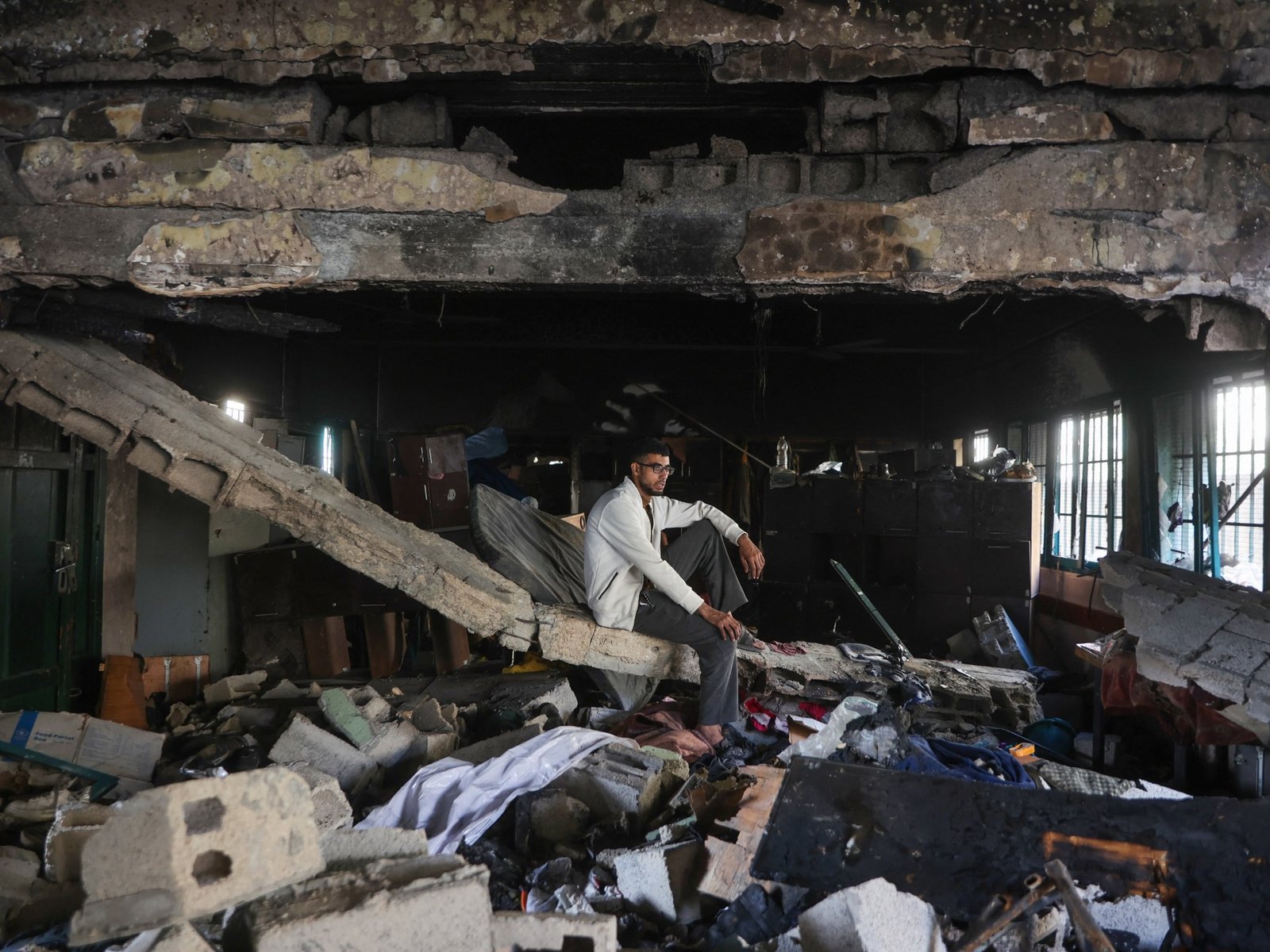Tensions in Gaza: The Impact of Conflict on Education and Hope
On July 27, 2025, the Palestinian Ministry of Education unveiled the results of the tawjihi, the secondary school certificate exams. This event, much anticipated each year, sees families gather, eyes glued to their screens, hearts racing in anticipation of the moment they can break the news with joyful shouts. Across the region, tears of happiness and celebrations erupted as students learned their fates.
For many, the results represented the culmination of months laden with pressure and sleepless nights, determining their educational futures. However, in Gaza, thousands faced heartbreak instead, left in makeshift tents amid devastation. I am among the 31,000 Palestinians born in 2006 who have been denied this critical examination for the second consecutive year, joining nearly 40,000 of my peers born in 2007, also trapped in educational limbo.
Last year, I sat in front of a flickering fire next to a small, tattered tent that barely contained my aspirations. Despite my year-long sacrifices and grueling study sessions under dire conditions, I felt as though my efforts had come to nothing. This year, the sense of despair is even more profound; not only are my educational dreams shattered, but I also grapple with the dire realities of survival in a place where food is running out.
Over these two years, I have witnessed the slow disintegration of our education system, building by building. My school, Shohada al-Nusierat, which once symbolized hope and learning, became a shelter and later a target for aerial strikes. What used to be my schoolbag, filled with notebooks, now carries only essential documents, ready for another possible evacuation. Instead of an academic calendar, our lives revolve around airstrike schedules and loss.
Despite the turmoil, the Education Ministry has attempted to sustain a semblance of educational continuity, launching various initiatives to inspire hope among the youth. Makeshift schools have emerged as a refuge for learning, and select university students have found ways to study online.
Efforts were made to organize tawjihi exams. Initially scheduled for February, then postponed to April due to safety concerns, the plans eventually evolved to an online format for other students. I had clung to the hope that my opportunity to take this pivotal exam would soon arrive, but updates have been sparse and our plight seems to have faded into the background amid the relentless chaos.
Some may wonder why, in the midst of such devastation, we remain focused on an exam. The answer lies in the cultural and emotional weight of the tawjihi—it’s a milestone that profoundly influences our futures, shaping our educational trajectories for years to come. In a territory where occupation constricts opportunities, education becomes a key to potential.
For Palestinians, the day tawjihi results are revealed is celebrated as if it were a national holiday, akin to a third Eid, bringing pride and hope to families and entire communities. This year, I maintained my aspiration to study medicine abroad, applying for scholarships and reaching out to universities across the United States, the UK, and Europe. Yet, despite my unique circumstances, the consistent reply from institutions was an unwavering refusal without a diploma.
Now, alongside my despair, hunger has become an unwelcome companion. We often have just one meal a day, subsisting on meager portions of canned beans or rice, devoid of nutrients. The toll of malnutrition resonates not just physically, but mentally as well, dulling motivation and focus. How can someone prepare for a pivotal exam when they are constantly battling hunger and fatigue?
It feels as though my youth is slipping away while I observe others, even in war-torn regions, beginning to carve out their futures. As a tawjihi student caught in the relentless grip of conflict, I urge educational authorities and international bodies to take immediate action to safeguard our rights to education, which should not be buried under the ruins of war.
We are not asking for much—merely an opportunity to complete our secondary education here in Gaza, which transcends logistical concerns; it’s a matter of justice and survival.
The views expressed in this piece are solely those of the author and do not necessarily reflect the stance of any news organization.

